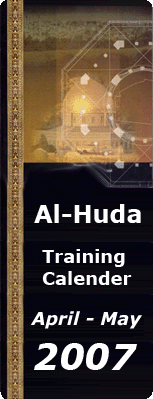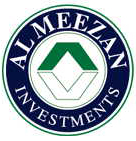| |
By M. Aftab (Analysis)
ISLAMABAD — Islamic Banking will get a big boost on the back of green signal to this mode of financial transactions. Gulf-Saudi based banks and investors who have already shown up in this expanding market for Islamic modes of financing will be the principal beneficiaries, the financial market analysts said.
The State Bank of Pakistan (SBP), the central bank, this week allowed Islamic Banking Institutions (IBIs) to start new products, provided these are ‘Shariah’-compliant. These products, so for, were mainly offered by the conventional commercial banks.
SBP in its draft instructions and guidelines for Shariah-compliance (SC) in Islamic Banking Institutions has provided that along side 15 approved SC products, the IBIs can introduce new products with approval of their Sharia advisers. It said, "IBIs may also engage in other business as authorised under Section 7 of the Banking Companies Ordinance, 1962, provided they are Shariah-compliant."
This permission vastly expands the scope of financial operations of IBIs. It also provides an effective regulation by SBP to protect interests of all stakeholders. They are now permitted to undertake financial products that are already marketed by the conventional commercial banks.
SBP Guidelines have, in particular, permitted Modarba, Musharaka, Diminishing Musharaka, equity participation in form of shares in corporate entities, Ijara-leasing, Murabaha, Musawama, Istijar, Salam, and Istisna, but Tawarruq may also be used in exceptional cases, requiring specific prior approval of SBP. The central bank also notified that Qard, Wakala, Assignment of Debt, and Ju’ala, all are permissible modes, not requiring security. These will be subject to usual limits for unsecured financing, as provided in the various Prudential Regulations, SBP has issued.
The central bank also says that any security, obtained by IBIs for participatory modes of Islamic financing will not be applied, or utilised, "to cover losses, except for those in case of negligence, fraud or misconduct by the customers." It will be prohibited for IBIs to transact or finance trading of impermissible or ‘Haram’ goods. A detailed, 3-stage permission is provided in the instructions to invest in shares. These are: Stage One: IBIs in the course of their business may invest their surplus funds in shares of companies whose primary business is not prohibited under Sharia. A screening process for selection of companies to invest in shares will be adopted. The companies with acceptable primary business activities will be identified, which will be further evaluated according to several ratio filters, as advised by the Sharia Adviser, to eliminate companies with unacceptable levels of non-Shariah compliant debt and non-Sharia income liquid assets.
Stage Two: In the event that a portion of non-Sharia compliant income exists in the invested company’s account, then income of IBIs shall need to be purified and IBIs’ share of non-Sharia compliant income shall be donated to charity on pro-rata basis for the period of its holding of the shares.
Stage Three: IBIs should follow the regulatory limits, prescribed by SBP in Prudential Regulations, in terms of their aggregate exposure in shares, both in ready cash and future market. The Central bank guidelines lay down five Policy Principles for profit distribution to depositors of Profit and Loss Sharing (PLS) accounts. The five: Identification and determination of pools of assets and related income and the basis of such determination, together with the methods for allocation of profit or loss between PLS (Profit & Loss Savings) depositors and the IBIs, whether IBIs participate in the investment with its own funds or not. Policy for charging provisions against non-performing assets in compliance with Prudential Regulations and profit equalization reserves out of income generated from PLS funds and to whom these provisions and reserves revert to, in case of write-back or recovery. Policy on the priority for investment of IBIs own funds and those of PLS depositors. Basis for allocating expenses to equity holders and various classes of depositors for determination and appropriation of profit. Profit sharing ratio and weightages for distribution of profit among various categories of deposits and periodicity for changing the same.
SBP asked IBIs to follow financial reporting standards for Islamic modes of financing issued by the government’s Security & Exchange Commission of Pakistan (SECP).
The instructions also provide, while determining the Schedule of Service Charges, Islamic Banking Branches of conventional banks will have a separate set of schedule of charges for their business. If IBIs want to fix different rates of charges for various categories of clients that is according to volume of business, then such categories should be clearly defined by IBIs.
The instructions vest the final authority on all matters with the SBP in case conflict resolution in Shariah Rulings is pronounced by different Shariah Advisers of IBIs. The Shariah ruling of Shariah Board of SBP will be final.
The SBP instructions also have prescribed the criterion for the appointment of the Shariah Adviser, their duties and responsibilities, use of charity fund, and requirement of internal Shariah Audit.
The central bank said the comments and views on these draft instructions and guidelines may be sent, within 15 days, to Director Islamic Banking Department of SBP.
Gulf, Saudi Arabian and Middle East groups are now doing more business, and showing still larger interest in banking in Pakistan. The major entry from the Gulf into Pakistan, two years ago, was the Dubai Islamic Bank (DIB). Dr Muhammad Khalfan bin Kharbash, the UAE Minister of State for Financial and Industrial Affairs, and Chairman of DIB, had received the licence to open the bank in Pakistan, from Prime Minister Shaukat Aziz.
Dr. Khalfan, then, had said, " Dubai Islamic Bank will prove to be a conduit for bringing more investments from the GCC countries to Pakistan." It has proved correct, when one looks at the FDI inflow from the Gulf region in the last two years.
Pakistan has now three dozen banks, a third of which are foreign based. It has six independent Islamic banks, while 12 conventional banks operate Islamic windows.
In order to make Islamic banking "the banking of first choice," for bankers and customers, SBP has been issuing licences for new Islamic commercial banks (ICBs), subsidiaries, stand alone branches, and Islamic windows at conventional banks. SBP’s Islamic Banking Department (IBD) oversees them. A Musharakah-based Export Refinance Facility is now also operating. Pakistan’s first "Sukuk" Islamic bonds in January, 2005 attracted $ 1.2 billion, of which Islamabad picked up $ 600 million.
A joint venture of Saudi Arabia, Bahrain and Kuwait, Meezan Bank, Pakistan’s first full fledged Islamic Bank (IB), now has a flourishing branch network. It was followed by Dubai Islamic Bank, Dubai Islami Bank, and the newest— Emirates Global Islamic Bank. They are rapidly expanding their branch network.
Side by side the highly profitable conventional commercial banks, Islamic banking is expanding fast, and SBP Governor Dr. Shamshad Akhtar is very upbeat. "Islamic banking will capture at least 10 per cent of the market share over the next three years," she says. Its market share was only 0.5 per cent in 2003 which rose to 3.0 per cent in 2006, and still more in 2007. It now has more than Rs100 billion in assets. The conventional and Islamic banks together had Rs. 2,920 billion in deposits at end-2006.
IB has Islamic products for investment banking, corporate banking, and consumer banking. Their next challenge is to develop Islamic alternatives for treasury products. They should also have an alternative for the conventional inter-bank lending which is interest-based.
Gulf-Saudi based Islamic banks in Pakistan are giving a big boost to Islamic banking, and are expanding GCC-Middle East-Pakistan business and private sector investment in Pakistan
Special Thanks “ Khaleej Times “ |









